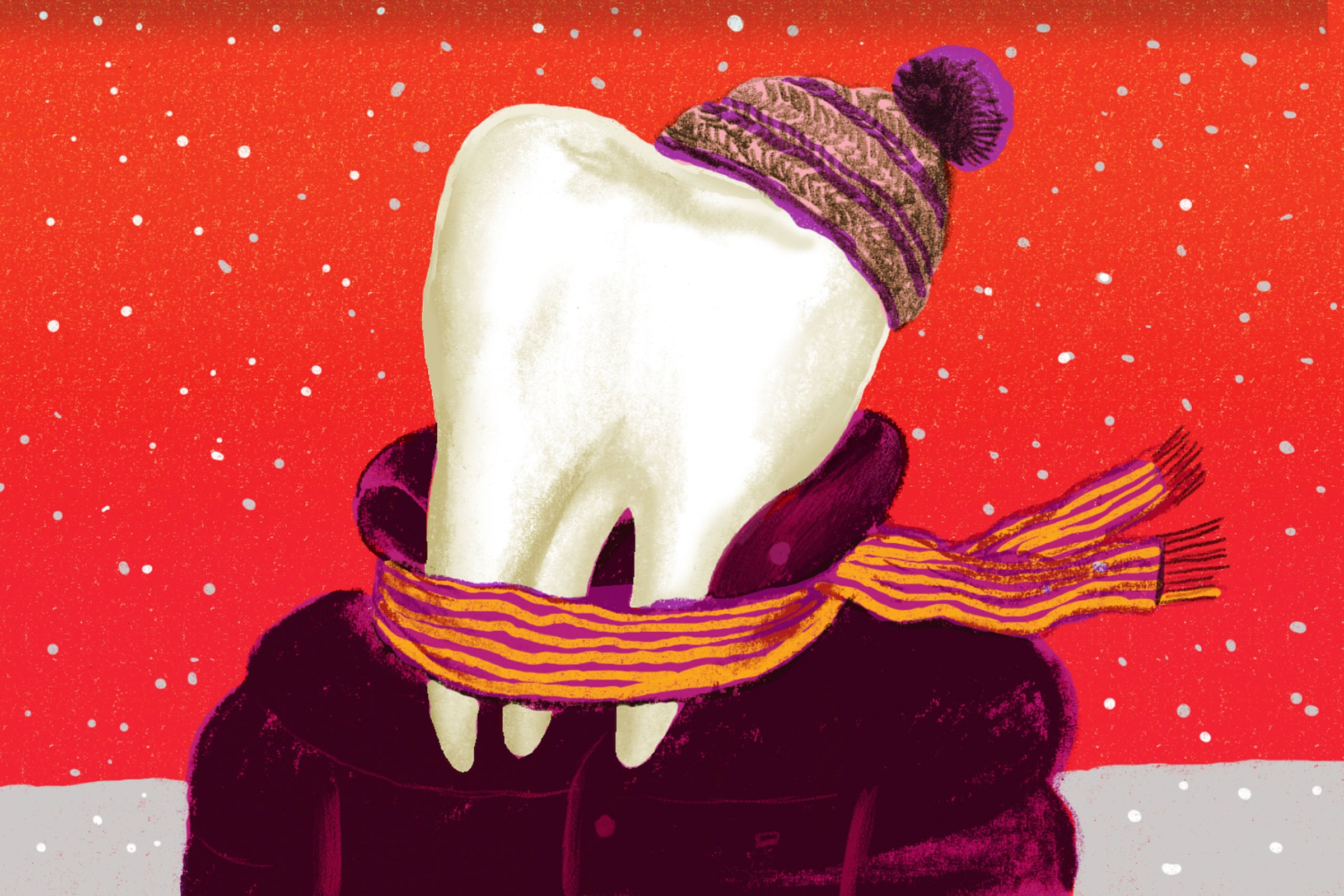
You feel it when you sip a hot drink or bite into a cool dessert: an ache, an acute stab of pain. Even a sharp breath of cold air might trigger a twinge. “Any tooth sensitivity is trying to tell us something,” says Dr. Matt Messina, an Ohio-based dentist and spokesperson for the American Dental Association. “It may be easy to treat, but something is still causing it.”
For dentists, the most common (and least alarming) sensitivity is an all-over reaction to very cold stimuli, Messina says. Especially if that cold-induced pain is short-lived, you probably don’t have reason to worry. But if the pain is persistent and confined to a specific tooth or area of your mouth, that’s a problem. “That’s often the sign of a micro-crack, a degraded filling or a cavity,” Messina says.
Those conditions, all of which require a dentist’s attention, become more probable if the tooth or area is also sensitive to heat and biting pressure. “If you have reactions to all three—cold, hot, and biting pressure—we could also be talking about some sort of infection in the tooth,” Messina adds.
If you’re dealing with an all-over ache, your gums—not your teeth—may explain your pain. Exposing your gums to irritants or harsh treatment makes them recede. And when they do, they leave exposed the tender roots near the base of your teeth. “Your roots don’t have the same quality of protective enamel as your crowns, so they’re more sensitive,” says Dr. Eugene Ko of the University of Michigan’s department of oral pathology.
Brushing too forcefully, chewing tobacco or allowing the buildup of plaque can all cause your gums to “run away” from your teeth, resulting in temperature sensitivity, Messina says. If you think gum recession might be the cause of your sensitivity, Ko says you may be able to look in a mirror and spot the issue. “The margin where your teeth and gums meet: there may be a change in color, almost like water elevation marks during a drought.”
Of course, there are many more reasons for temperature-sensitive teeth. Those include the excessive use of mouthwash or whitening products, dead or dying nerves, tooth grinding, recent dental work or serious gum issues like gingivitis or periodontal disease. Messina also says eating lots of acidic foods—things like soda, sports drinks, sour candy or citrus fruits and juices—can lead to a loss of tooth enamel that renders your teeth sensitive to temperature.
Apart from ditching those foods, Messina advises carefully reading and following instructions when using whiteners, mouth rinses, or other dental hygiene treatments. “More is not always better,” he warns.
When it comes to brushing, apply gentle pressure with a soft-bristle toothbrush. “You’re trying to massage you teeth all the way to the junction where they come together with your gums,” Messina says. “You should not be scrubbing like you would tub grout.” If changing your brushing technique doesn’t do the trick, he says switching to a sensitive-teeth toothpaste can help. “These contain a chemical agent that fills tubules in teeth and blocks sensitivity,” he says.
No matter what, you should mention the temperature issue to your dentist during your next visit. “Big problems often start out as sensitivities,” Messina says. “The solutions are often simple, but only if we address the problem early.”
You Asked: Your Top 10 Health Questions Answered










More Must-Reads from TIME
- Donald Trump Is TIME's 2024 Person of the Year
- TIME’s Top 10 Photos of 2024
- Why Gen Z Is Drinking Less
- The Best Movies About Cooking
- Why Is Anxiety Worse at Night?
- A Head-to-Toe Guide to Treating Dry Skin
- Why Street Cats Are Taking Over Urban Neighborhoods
- Column: Jimmy Carter’s Global Legacy Was Moral Clarity
Contact us at letters@time.com